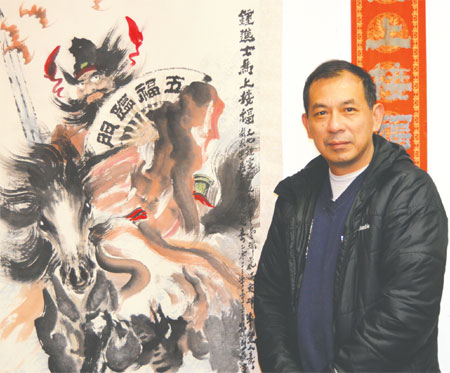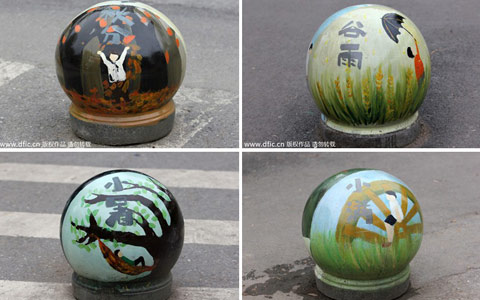Artist's canvas includes promoting Chinese culture
Updated: 2014-03-14 15:01
By Deng Yu in Seattle (China Daily USA)
|
||||||||
|
Deng Zuolie has contributed to artistic exchanges between China and the US by organizing several painting exhibitions in both countries for more than 10 years. Deng Yu / China Daily |
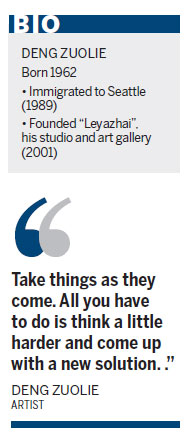
In Seattle's Chinatown, there is a studio and art gallery called "Leyazhai". If you walk into the studio, you will see large Chinese paintings of exquisite beauty, calligraphy scrolls and traditional stone seal engravings.
You also will probably find Deng Zuolie, a widely recognized Chinese-American artist painting in the back room of his studio.
Besides painting and running his gallery, which opened in 2001 and is the first one run by a Chinese immigrant in Seattle, Deng has contributed to artistic exchanges between China and the US by organizing several painting exhibitions in both countries for more than 10 years. To commemorate Deng's promotion of Chinese culture and art in the US, Ron Sims, former King County executive, set Feb 28 as the "Deng Zuolie Day" in 2009.
Deng, 52, is also recognized as a community leader for his contributions to Seattle's Chinese community. He has been chairman of the Washington Overseas Chinese Artists Association, and serves as vice-president of the China Council for the Promotion of Peaceful National Reunification, Washington State Chapter. He is an honored member of the Guangdong Province Overseas Chinese Association, as well as a member of many other organizations and associations.
In 2006 when former Chinese president Hu Jintao visited Seattle, Deng, as a representative of the local Chinese community, gave him his newly done painting of China's rivers and mountains as a gift.
"I had been thinking of a painting that could reflect China after about 30 years of opening-up and reform. And the painting - named Prosperous Motherland - actually had been started for almost one year. When I got the exciting news that president Hu would visit the US, I was inspired and finished the painting in one night," Deng recalled.
Deng started painting at very early age. "My older brothers and I spent most of our childhood at a museum located close to my father's office building at that time," Deng said.
The museum then became an "artist's cradle" to Deng since it was where all types of artists gathered and showed their painting skills. Given a painting brush and rice paper, the 5-year-old art lover started his training in Chinese painting, helped by the artists who frequently visited the museum. By copying famous paintings at the museum, his early art work covered a wide range of subjects from landscapes and flowers to birds and people.
During his studies at the College of Political Science and Law in Guangdong, Deng's painting of plum flowers won an award. He gradually built up his expertise in impressionistic Chinese water color painting. He combined Western-style painting skills and the spirit of Chinese art to his work done in the US.
In 1999, at an art contest hosted by the Asian Pacific Art Institute of America, he was awarded the medal of art contributors. His paintings were then included in well-know publications such as Artists of Chinese Origin in North American Directory and The World Famous Chinese Artists Almanac.
Deng was a civil servant in Guangzhou, southern China's Guangdong province when he left for Seattle in 1989. Though now a successful artist, Deng recalls that his first years in the US were very painful.
As a newcomer, he experienced the "cultural shock period". He could not get accustomed to the American lifestyle, social culture and language. "I had to start from scratch in an unknown land," said Deng.
In those early years in the US, Deng worked as dishwasher, handyman and cook in Chinese restaurants to save money to start his own business. Deng said he did not consider doing such jobs painful. What troubled him most were alienation and culture shock, which he said turned him into a member of a vulnerable minority group in the US from a member of Chinese mainstream society.
He faced problems that all minority groups have to face in the US, including employment, housing, the language barrier, children's education and medical security.
"To overcome the culture shock, we should do as the Americans do in the US. What's more, ambition and hard work can help us live a better life and gain spiritual happiness," Deng said.
At the peak of his American life, Deng operated four restaurants with friends, but the 9/11 terrorist attacks in 2001 caused a downturn in the US catering industry and forced him to close his restaurants.
Now Deng said he is fulfilling his dream of being an artist, and he hopes other Chinese immigrants to the US who experienced culture shock are realizing their American dreams.
"Take things as they come," he said. "All you have to do is think a little harder and come up with a new solution. Besides, by highlighting your own culture, you actually help Chinese immigrants to America better integrate into American society."
lindadeng@chinadailyusa.com
(China Daily USA 03/14/2014 page11)

 Sino-US doctors join hands to fix young hearts
Sino-US doctors join hands to fix young hearts
 CSSC to expand its offshore businesses
CSSC to expand its offshore businesses
 Lenovo CEO honored with Edison innovation award
Lenovo CEO honored with Edison innovation award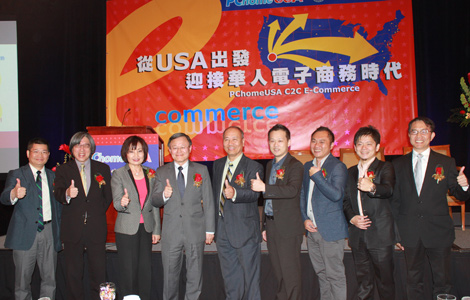
 Shopping spree
Shopping spree
 Top 10 world's highest-paid athletes
Top 10 world's highest-paid athletes
 NY real estate firms woo Chinese buyers
NY real estate firms woo Chinese buyers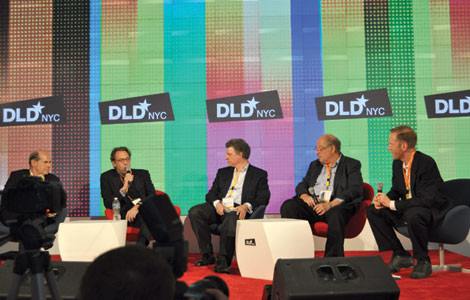
 China 'to lead' digital revolution
China 'to lead' digital revolution
 Miss CA: Key to success is to 'keep trying'
Miss CA: Key to success is to 'keep trying'
Most Viewed
Editor's Picks

|

|

|

|

|

|
Today's Top News
China's manufacturing picks up in April
Chinese firms join IBM's new chip-tech group alliance
Xbox One may see buying rush in China
China's Xi orders 'crushing blow' to terrorism
Malaysia releases preliminary report on MH370
China, Russia to hold joint military exercise in May
Chinese, Australian PMs discuss MH370 flight
China, Russia to hold joint military exercise in May
US Weekly

|

|
